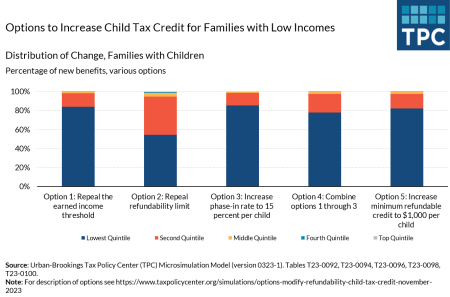It didn’t take long for the newly minted House Speaker to make headlines. In his first major proposal as House Speaker, Mike Johnson (R-La.) introduced a supplemental appropriations package that would provide $14.3 billion in military assistance to Israel in exchange for slashing an equal amount of IRS funding.
Inflation Reduction Act
The IRS cuts would be made to funds that were previously approved as part of the Inflation Reduction Act of 2022. Those funds—$80 billion—were earmarked for the IRS to spend over the next decade as part of a strategic operating plan. You can find more details and links to the plan here.
After agreeing to the funding, Congress began trying to beat it back. In May, as part of the debt ceiling agreement, about $1.4 billion of funding for the agency was to be rescinded. The Biden administration reportedly agreed to more cuts ($10 billion in FY24, $10 billion from FY25), but that agreement did not appear in the final version.
Additional efforts to cut IRS funding have not been successful, though members of the Freedom Caucus—an ultra-conservative group in the House—have vowed to gut the agency. Replacing McCarthy with Johnson may have been critical to that strategy.
That doesn’t mean that this is a done deal. Democrats in Congress aren’t likely to support the measure for many reasons, including the suggestion that the IRS is using funding to improve collections in key areas. IRS Commissioner Danny Werfel has touted the agency’s initiatives on high-income earners, partnerships, and large corporations, claiming the initiatives will help close the $688 billion tax gap—the difference between what is owed and what is being paid. Last month, the IRS identified about 1,600 new taxpayers who owe hundreds of millions of dollars in taxes and claims it has collected $122 million in 100 of those cases.
Werfel also talked up improvements to taxpayer service, including opening or reopening new taxpayer assistance centers and ramping up hiring. In 2022, the IRS clocked in a dismal 14% level of service with an average answer speed of 31 minutes. With more resources, the IRS reported that in 2023, the agency reported an 87% level of service on its main taxpayer help line with an average answer speed of three minutes.
Werfel stressed the need for continued funding for the IRS, saying, “A well-funded IRS is better for taxpayers.”
Treasury Response
Not surprisingly, those in the Treasury believe that Johnson’s proposal would be detrimental to the IRS.
Ashley Schapitl, a Treasury spokesperson, said in a statement, “House Republicans’ legislation would increase the deficit by helping wealthy individuals and corporations cheat on their taxes, increasing the tax burden on honest, hardworking families who pay their taxes with every paycheck. Thanks to the Inflation Reduction Act, the IRS has already recovered $160 million from 275 individuals who make more than $1 million a year and have $250,000 in recognized tax debt, without increasing audits on those earning less than $400,000 a year. This legislation would put a stop to these efforts, allowing wealthy individuals and large corporations to continue to get away with not paying their fair share.”
No Additional Funding
Cuts to the IRS aren’t the only thing that’s concerning members of Congress. Johnson’s proposal only includes funding for Israel—it does not include funding for Ukraine or Taiwan—and notably for Republicans, there’s no money for U.S. border security.
In particular, Sen. Republican Leader Mitch McConnell (R-Ky.) made clear that he views the Israel and Ukraine conflicts as part of a more significant global threat. At an Oct. 30 event for the Ukrainian Ambassador to the United States, Oksana Markarova, McConnell said, “As the barbaric terrorist attacks of October 7th against Israel remind us, this threat is not unique to Ukraine. Israel has faced this threat for decades. And as President Zelensky has made clear, Israel’s cause resonates in the hearts of Ukrainians.”
McConnell added, “Right now, loud voices on both sides of the aisle are suggesting that American leadership isn’t worth the cost. Some say our support for Ukraine comes at the expense of more important priorities. But as I’ve said every time I get the chance, this is a false choice.”
White House Response
It’s an instance where Senate Republicans and the White House may have common ground. In a statement earlier this evening, White House Press Secretary Karine Jean-Pierre said, “Politicizing our national security interests is a nonstarter. Demanding offsets for meeting core national security needs of the United States—like supporting Israel and defending Ukraine from atrocities and Russian imperialism—would be a break with the normal, bipartisan process and could have devastating implications for our safety and alliances in the years ahead.”
Jean-Pierre also reiterated the President’s support for funding both Israel and the U.S. border, including hiring more CBP officers, suggesting, “Threatening to undermine American national security unless House Republicans can help the wealthy and big corporations cheat on their taxes—which would increase the deficit—is the definition of backwards.”
Read the full article here








